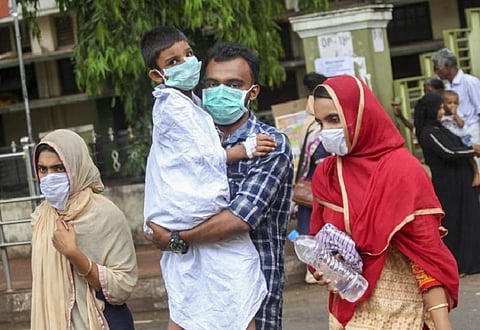

Walking around Perambra, in Kerala’s Kozhikode district, it is now common sight to see people wearing a mask or covering their nose and mouth using a handkerchief. From the passengers on buses, two-wheeler riders, and even auto rickshaw drivers, the light blue mask has now become a necessity for anyone venturing out of their homes. The fear of contracting Nipah virus, which has claimed 14 lives in the state, has gripped this quaint village.
A bus stop in Sooppikkada
Sameer is an auto rickshaw driver who is one of people who has stopped wearing the mask, to protect himself from contracting the virus.
"All of us wore the mask for around two weeks and now I have stopped it. I occasionally wear it. I think the risk period is over," Sameer says.
As he drives to Sooppikkada village in Changaroth Panchayat, where four members of a family died from the fever leading to the outbreak, he points to an unpainted house down a narrow, untarred lane.
Moosa's house is Sooppikkada
The now-closed house belonged to 60-year-old Moosa, who had lived there with his three sons and wife. On May 5, his son Sadik died after suffering from a fever. On May 18, his other son Salih too died after experiencing the same symptoms. His sister-in-law died on May 19 and six days later on May 24, Moosa too passed away.
Closed houses
After the tragic death of four members of her family, Moosa's wife shifted to her brother's house a few kilometers away, along with her youngest son.
However, Moosa's house is not the only one in the locality which has remained closed.